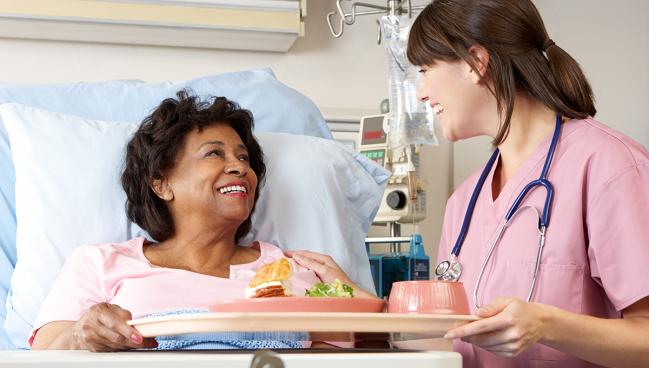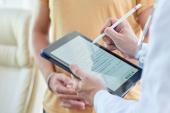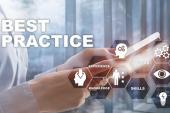No Fasting Before Cath? Study Shows No Harm—and Happier Patients
This is the latest study to show that NPO before a cardiac catheterization is an outdated practice with no benefits.

Allowing patients to eat up to the time of a cardiac catheterization does not increase the risk of adverse events compared with the standard practice of nothing by mouth (NPO) after midnight, new data suggest. What’s more, easing up on the restrictions also may improve patient satisfaction due to less hunger and thirst before and after.
In the small, single-center study, no patients in either group experienced postprocedural pneumonia, aspiration, intubation, or hypoglycemia.
Lead author Carri Woods, MSN, RN (Parkview Heart Institute, Fort Wayne, IN), told TCTMD that these safety data allow for patient comfort and satisfaction to be put at the forefront of care.
“They could eat whatever was on the menu. So, it was essentially our heart-healthy menu, and we worked with the dietitian and just removed high-acidic options,” she said. For most patients in the study, this meant a pretty typical breakfast or lunch that included fruit, cereal, and sandwiches.
In the paper, published January 1, 2024, in the American Journal of Critical Care, Woods and colleagues say that the study, combined with other data like those from CHOW NOW suggesting no harm in allowing patients to eat before cardiac procedures, should spur professional societies to review their guidelines. CHOW NOW, presented at SCAI 2020, was larger than the current study, at 599 patients, and found no differences in rates of aspiration pneumonia, nausea and vomiting, or contrast-induced nephropathy among those randomized to NPO or unrestricted oral intake before their cardiac catheterization.
This issue was reviewed most recently by several councils of the American Heart Association (AHA) in a scientific statement on evidence-based practices in the cath lab.
Sripal Bangalore, MD (NYU Langone Health, New York, NY), who chaired the writing committee for that statement, told TCTMD that while the study is small and consists of mostly white men, it is further confirmation of what many have long believed in terms of the need for NPO orders for cardiac catheterization patients.
“It was all based on theoretical risk that some patients may need CABG or some patients may start throwing up during the procedure. . . . But we don’t hold those same rules for patients who come in with STEMI, and we don’t see a lot of those patients throwing up or going to aspiration pneumonia,” he noted.
Fasting before procedures may even be deleterious for certain patients being prepped for the cath lab, with plenty of anecdotal evidence that those with chronic kidney disease can become too “dry” even in a short period of time, he said.
“In my opinion, reducing the fasting time is important not only for patient comfort, but also to make sure that patients with diabetes or with renal disease don't have worsening kidney function,” Bangalore added.
No Differences in Safety
For the study, patients (mean age 62.7 years; 37.6% female) scheduled for elective diagnostic or interventional cardiac catheterization in the progressive inpatient cardiac unit of a regional heart institute were randomized to stop eating at midnight on the day before their procedure with only sips of water allowed for taking medication (n = 97) or to a diet low in fat, cholesterol, sodium, and acidity, plus water as needed, until the time of the scheduled procedure (n = 100). The majority of patients were white, with 57% undergoing diagnostic procedures. Nearly 40% in each group received a loading dose of antiplatelet medication.
Before and after sedation, data were collected on nausea, vomiting, pain, thirst, hunger, fatigue, blood glucose level if diabetic, and gastrointestinal symptoms such as acid reflux, heartburn, belching, and bloating.
In addition to not seeing any safety events in either group, the authors also report no differences between the groups in levels of fatigue, blood glucose, or gastrointestinal issues.
A visual analog scale was used to measure thirst, hunger, and fatigue.
On a score of 1 to 5, with 1 being most satisfied with their diet before the procedure, the mean score was 1.3 in the group who did not fast versus 3.1 for those who did fast (P < 0.001). As a group, those allowed to eat reported less thirst before the procedure and less hunger before and after the procedure than those in the fasting group (P < 0.001 for all comparisons).
It’s a traditional practice that’s been handed down for ages and needs to be changed. Sripal Bangalore
Woods and co-author Michelle Wood, MSN, RN (Parkview Heart Institute), told TCTMD that as a result of the study findings, the practice for inpatients and outpatients has now been changed at their center to follow the same protocol as outlined in the study, with the full support of staff cardiologists.
While it may come as a surprise to some, they say there were no time restrictions at all in the group allowed to eat and drink, with food being permissible right up until patients were being taken into the cath lab.
Woods and Wood added that changing the NPO rule may have wide-ranging implications for patients and their healthcare teams.
“All of us have had experience with patients that were frustrated with not being able to eat,” Woods noted. “Their procedure would get delayed because of emergencies coming in, and it would be hours upon hours of them not being able to eat and so they get upset and grumpy, and then the nurses get the brunt of that.”
Woods and Wood said while larger, multicenter studies to replicate their data are encouraged, they think the big-picture message from their research may be to begin looking at other procedural situations beyond the cath lab where NPOs may be an unnecessary burden on patients.
For Bangalore, the lack of evidence to support the ingrained practice of NPOs for cardiac catheterization patients coupled with the data from this study and CHOW NOW is highly suggestive that it’s time for a change. He said in his own practice, patients can eat a light breakfast on the day of their procedure.
“I think people have already changed practice, at least in select hospitals, but it's not widespread. It’s a traditional practice that’s been handed down for ages and needs to be changed,” he added.
L.A. McKeown is a Senior Medical Journalist for TCTMD, the Section Editor of CV Team Forum, and Senior Medical…
Read Full BioSources
Woods C, Wood M, Boylan A, et al. Fasting versus a heart-healthy diet before cardiac catheterization: a randomized controlled trial. American Journal of Critical Care. 2024;33:29-33.
Disclosures
- Woods and Bangalore report no relevant conflicts of interest.




Comments